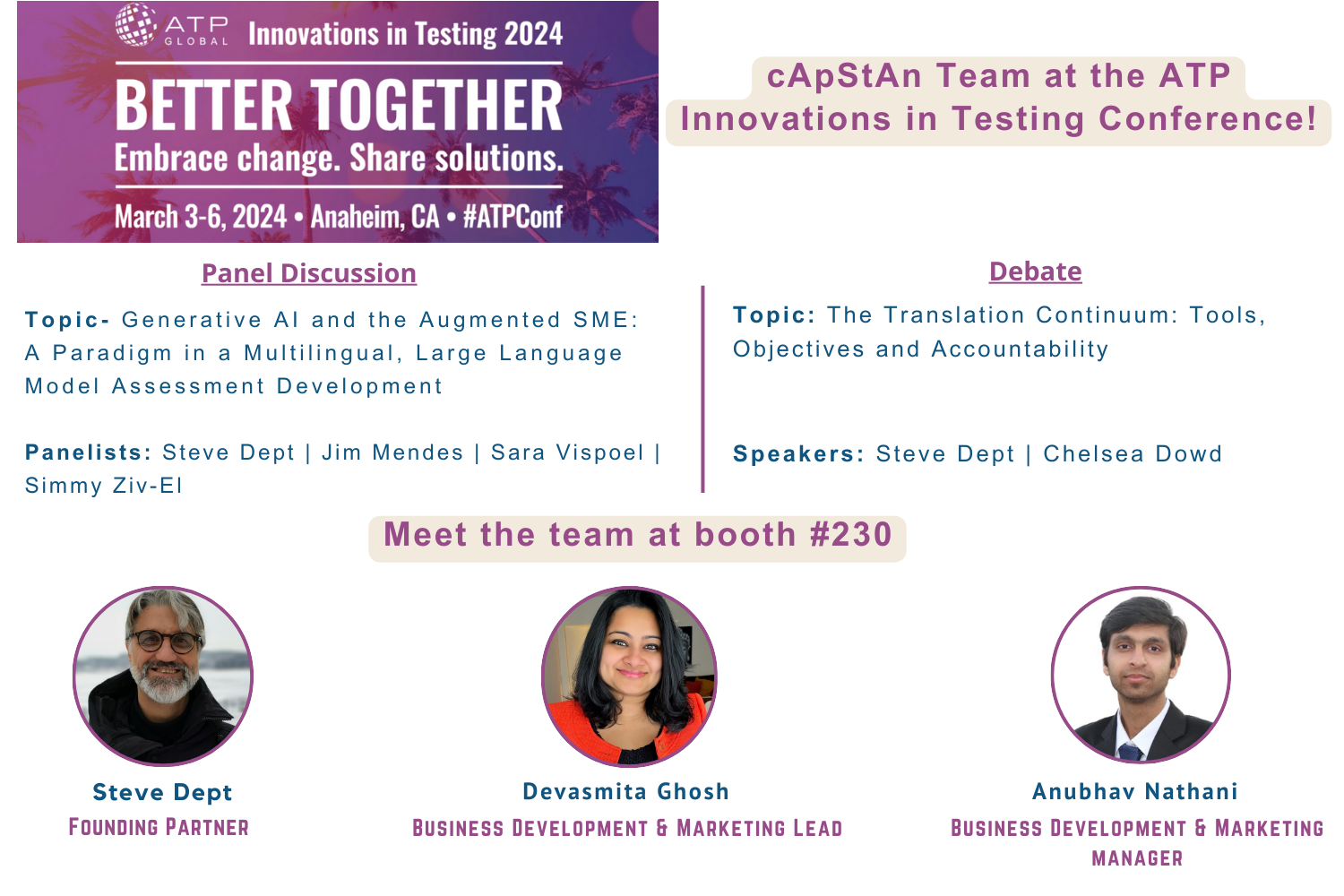
cApStAn at ATP Innovations in Testing Conference, Anaheim, USA
The testing industry is a complex ecosystem that undergoes profound mutations. To monitor these advances, to collectively voice concerns, to advocate the industry’s position, and to issue advice and guidelines, the Association of Test Publishers (ATP), founded in 1992, brings together pioneers, key stakeholders, thought leaders, researchers, test sponsors, certification bodies, advisors and vendors. While the ATP’s numerous activities are spread across geographies and take place throughout the year, there is one annual event that functions as a hub, a crucible, and a catalyzer for all things new in standardized assessments: the Innovations in Testing Conference. This year, March 3-6, in Anaheim, California, will be the 25th edition, with the eloquent conference theme “Better together. Embrace change. Share solutions.”
Better together: cApStAn is proud to be one of conference’s Gold Sponsors. At our booth #230, our Global Business Development Lead Devasmita Ghosh, her colleague Anubhav Nathani and cApStAn founder Steve Dept are keen to answer all your questions about multilingual assessments, translation of assessment content, linguistic quality assurance, content profiling, and – Embrace change – the newest tools and workflows we deploy to turn your localization challenges into a success story.
Share solutions: Our very own Steve Dept will also be center stage to share new developments.
On Monday, March 4, 2024, at 1:20 p.m., he will participate in a 70-minute panel session titled “Generative AI and the Augmented SME: A Paradigm in a Multilingual, Large Language Model Assessment Development”. Jim Mendes from Adobe, Sara Vispoel from Finetune learning and Steve Dept from cApStAn will have a fiery discussion, moderated by Simmy Ziv-El (Prometric). In a nutshell: a linguist, a psychometrician and a certification practitioner will leave generalist large language models aside and discuss the potential and the limitations of a highly specialized language model that generates test items. The idea is to treat language models as a productivity tool that remains inseparable from the psychometric expertise of subject matter experts. It could be designed in English but trained with corpora in additional languages and eventually generate output in those languages. The selection and training of human experts to review the output will be key.
In a second debate, “The Translation Continuum: Tools, Objectives and Accountability”, scheduled on Tuesday 5 March at 1:40 p.m., Chelsea Dowd from Learnosity and Steve Dept from cApStAn will confront two very different types of assessment translation: can on-the-fly machine translation function as an accommodation to support non-native speakers in a monolingual testing context? Can technology be harnessed to produce comparable versions of an assessment in a multilingual context? In both contexts, fair and valid results matter, but the tools and the approaches differ. This promises to be a panoramic view of use cases in which different translation methods can and should (or should not) be used.
And, of course, this is where we reconnect with our clients, our partners, our friends and our competitors. This is where we take the industry’s pulse: this is where we get a sense of how shifts in societal priorities play out in the universe of standardized assessments. This where we can observe how effectively the risks that come with technology-driven solutions are being addressed in the testing industry.
See you in Anaheim, California on March 3-6!